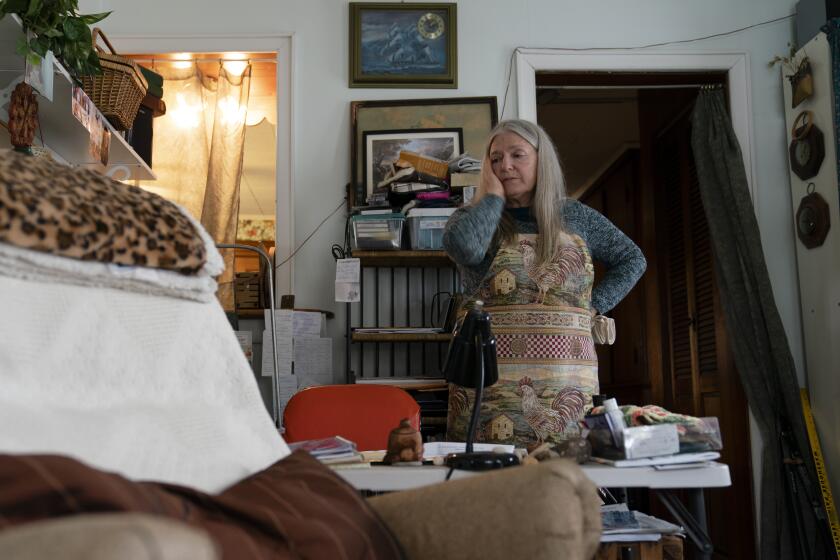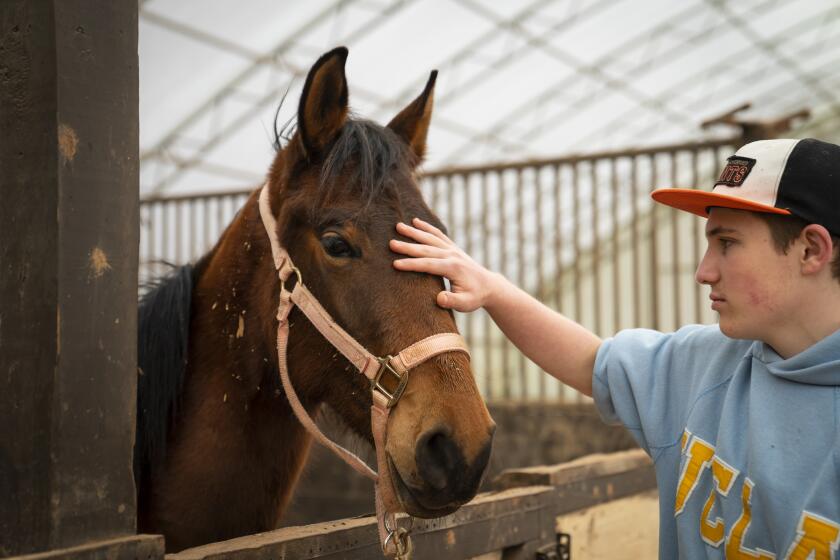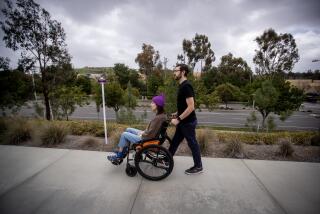How patients wrote ‘the first textbook’ on long COVID
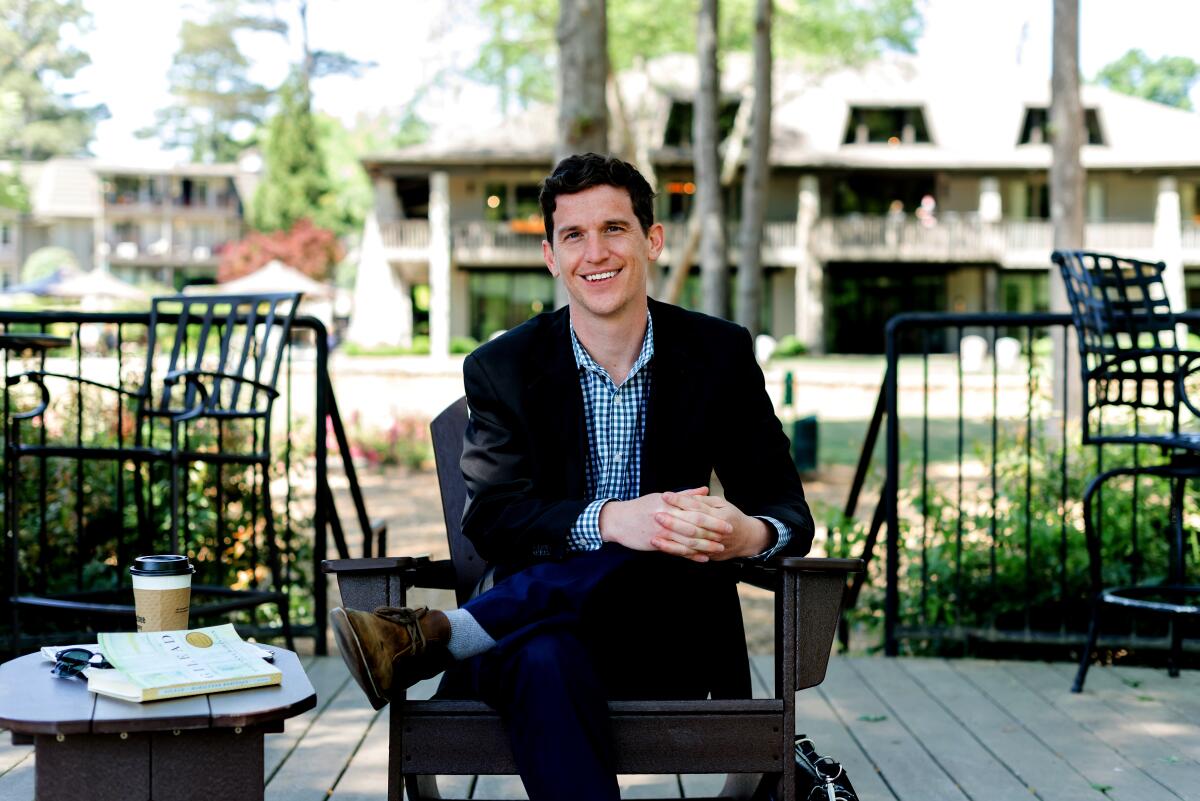
- Share via
On the Shelf
'The Long Haul: Solving the Puzzle of the Pandemic's Long Haulers and How They Are Changing Healthcare Forever'
By Ryan Prior
Post Hill: 336 pages, $28
If you buy books linked on our site, The Times may earn a commission from Bookshop.org, whose fees support independent bookstores.
On Sept. 18, 2022, the day after President Biden pronounced the “pandemic is over” on “60 Minutes,” the #MEAction Network protested at the White House to demand Biden declare a national emergency for people with post-infection illness. In attendance was Ryan Prior. A journalist at CNN, Prior has an illness strikingly similar to long COVID, myalgic encephalomyelitis, euphemistically known in the U.S. as chronic fatigue syndrome. Now he is the author of “The Long Haul: Solving the Puzzle of the Pandemic’s Long Haulers and How They Are Changing Healthcare Forever.”
“Long hauler,” if the phrase is still unfamiliar, refers to someone who has not recovered after a COVID infection or who has long COVID — a multisystem syndrome with myriad symptoms ranging from profound exhaustion to cognitive impairment. Both “long hauler” and “long COVID” were terms coined by patients — itself a unique phenomenon; diseases are usually named by the doctors who discover them. Although long COVID is caused by a novel virus, post-infection disease is not new. Think of post-polio syndrome and AIDS.
In Prior’s framing, long COVID is a shadow pandemic of the one we have been marking only by hospitalizations and deaths. As COVID-19 spread across the world, Prior writes, devastating data emerged: “Hundreds of studies showed that multisystem illness could linger for weeks, months, or longer in an estimated 10 percent to 30 percent of those infected” — a mass disabling crisis. (Since he finished his book, a newer CDC study found that nearly one in five American adults infected with COVID-19 has developed long COVID.)
In this shadow pandemic, previously healthy and active people are becoming shells of their former selves. Alarmingly, more and more patients are also meeting the criteria for myalgic encephalomyelitis (ME), which in its severe form has been compared to “late-stage AIDS, multiple sclerosis and kidney failure.”
A new research initiative will explore whether the persistence of coronavirus in the body plays a role in the development of long COVID.
Prior distills nearly three years of pandemic research and interviews into a careful mosaic of patient narratives, recounting the story of long COVID alongside his own journey with ME. He also chronicles how activist-patients have led the struggle toward acknowledgment and research in the hope of finding treatment and eventually a cure. From their beds, long haulers found each other over social media, organized and began doing the impossible. Support groups created a space to be seen, to share symptoms and stories that turned into “vital information about the long-term effects of Covid-19.” They met not merely to console but to mobilize, and they collected data as “regular citizen scientists rather than the political and medical establishment.”
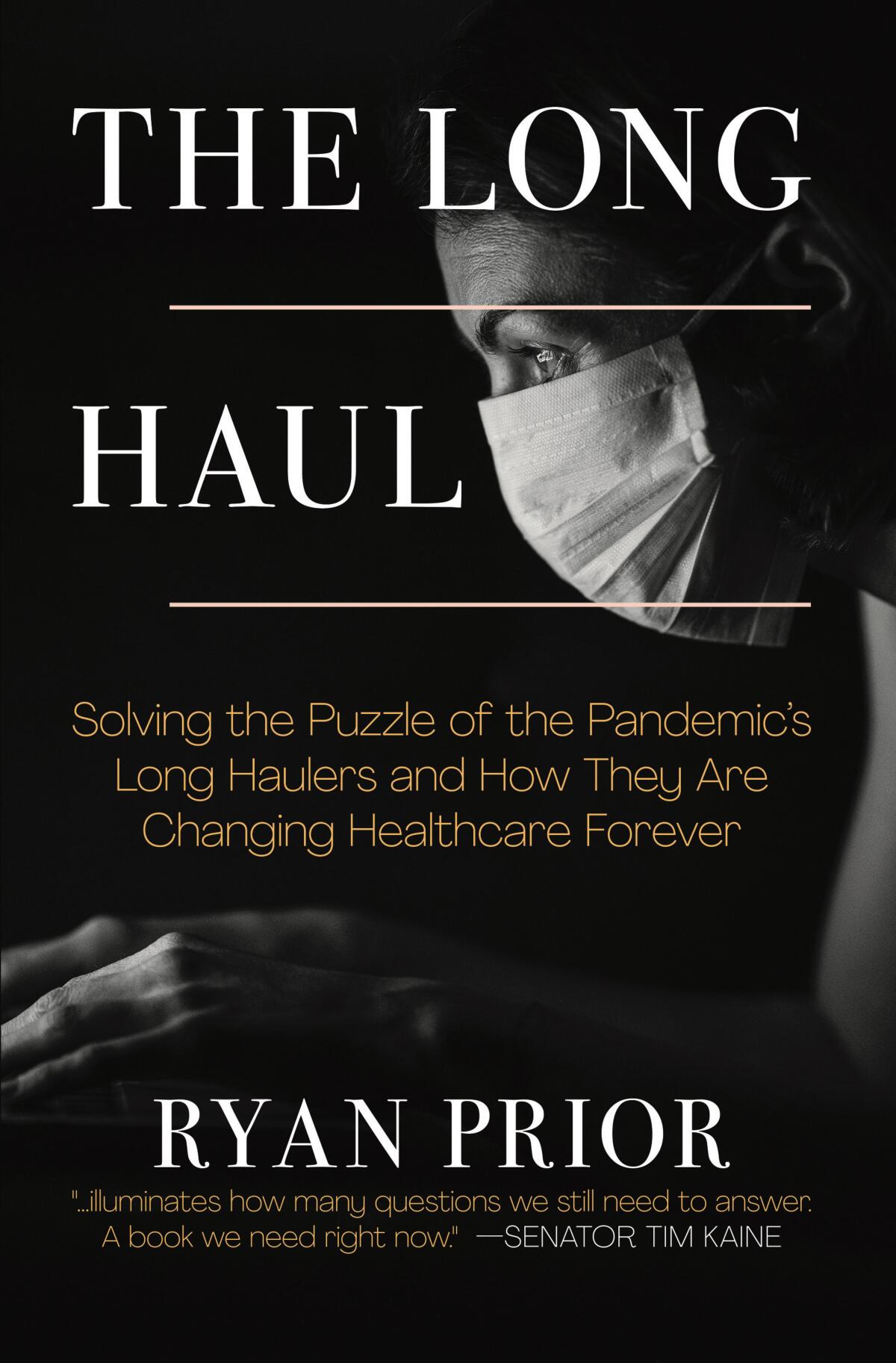
As their numbers grew, one of these groups, LongCovidSOS, organized a meeting to present its findings to the World Health Organization — whose director-general observed: “It appears that patients are writing the first textbook on long COVID.” Soon the CDC began reaching out to long haulers for notes on symptoms, compiling and publishing one-page briefings that even included, for the first time, the hallmark symptom of ME and now long COVID: post-exertional malaise. These collaborations led to the CDC’s guidelines for long COVID — signaling that the establishment had confirmed the existence of the disease.
Though the journey of patient-led activism threads the narrative of Prior’s book, he is most compelling when he turns attention from the data to the personal element of living with chronic illness. As with any social issue, differences in race, ability, sex and gender can further ostracize the marginalized — in this case, the chronically ill. Prior takes these disparities head-on, giving voice to the disenfranchised in his words and their own.
The medical establishment has a sordid history of mistrust and mistreatment of people of color, especially Black people. Cynthia Adinig, a Black woman who developed long COVID and struggles with many of its comorbidities, joined a long COVID support group on Facebook, looking for a way to treat her illness because her doctors had no answers.
Over the last three months, 17 writers provided diaries to the Times of their days in isolation, followed by weeks of protest. This is their story.
“When the medical system discards us like trash and abuses us, it feels like rape,” Adinig tells Prior. “And as a victim of rape, I know what that feels like. … When you have someone of power steal your trust, and then you’re powerless to do anything, that to me is rape.”
In such moments, “The Long Haul” is hardly an easy read, yet Prior beautifully digests the patient experience with precise and compassionate understanding. “When there’s no reflection of our experiences in the world, we struggle to make any sense of it at all,” he writes. “Such is the case for chronic unknown illness. It’s a no man’s land both in medicine and popular culture, where individuals are left to create their own coping mechanisms, emotional and physical support structures, and roads to recovery.”
In his final, most personal chapter, Prior dives into what distinguishes true from false hope: the willingness to accept the hard reality of chronic illness and all its losses and to redefine oneself within its limits. To hold on to hope that things can change because change is the one constant in life. This is not a Pollyannaish covering-over of catastrophe but a sincere reckoning with the self and its capaciousness.
“And perhaps the truest hope I know,” Prior concludes, “is a faith in the resilience of regular people with lived experience of a problem to gather together ... to help write or reform policy, and to endeavor in a collective effort ceaselessly to try and change the world. And whether we actually change it or not, I believe in that collective striving, in the sparks that fly out from the friction of striking against a rocky adversary.”
Studies have confirmed that these lingering symptoms are real and take a real toll. The next big step will be to figure out exactly what causes them.
In those sparks, the book offers its most profound message: In the nexus of patient activism and science, there is hope for a cure.
Ochoa is a cultural critic and the author of “Stella! Mother of Modern Acting.”
More to Read
Sign up for our Book Club newsletter
Get the latest news, events and more from the Los Angeles Times Book Club, and help us get L.A. reading and talking.
You may occasionally receive promotional content from the Los Angeles Times.
